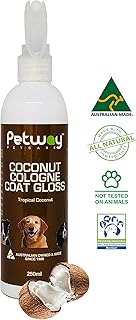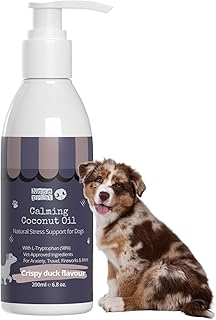Coconut oil has gained popularity not only in human health but also in the wellness of pets, particularly dogs. Extracted from mature coconuts, coconut oil is rich in medium-chain triglycerides (MCTs) and saturated fats, which offer various health benefits. These benefits include aiding digestion, soothing skin irritations, preventing infections, and reducing allergic reactions in dogs. However, pet owners should always consult their veterinarian before incorporating coconut oil into their pet’s regimen to ensure safety and appropriateness.
One of the primary uses of coconut oil for dogs is as a dietary supplement. When added to a dog’s meals in moderation, coconut oil can help balance thyroid function, assist in weight management, and boost energy levels. Studies have shown that coconut oil can enhance nutrient absorption, alleviate digestive issues, and reduce inflammation in dogs. It is important to start with small amounts and monitor your pet’s response, especially if they have weight concerns or a history of pancreatitis.
Coconut oil can also be beneficial when applied topically to a dog’s skin. Massaging a small amount of coconut oil onto the skin can moisturize and prevent flaking, particularly during dry weather. Additionally, coconut oil can serve as a natural repellent against fleas and ticks, offering a chemical-free alternative for pet owners concerned about their dog’s exposure to pests.
Another creative use of coconut oil is as a coating for pills. Administering medication to dogs can be challenging, but coating pills with coconut oil can make them more palatable and easier for dogs to swallow. The enticing flavor and texture of coconut oil can help mask the taste of medications, making pill time less stressful for both pets and owners.
Furthermore, coconut oil’s natural antibacterial, antiviral, and antifungal properties make it a valuable resource for soothing minor wounds in dogs. By applying coconut oil to cracked paw pads, minor cuts, or skin irritations, pet owners can help promote healing and alleviate discomfort for their furry companions. However, it is essential to avoid using coconut oil on open wounds that are actively bleeding or infected.
Lastly, coconut oil can be utilized as a natural teeth-cleaning agent for dogs. Its antimicrobial properties can help eliminate bacteria and plaque, potentially reducing the risk of dental disease in pets. Whether added to toothpaste or applied directly to the teeth, coconut oil offers a safe and tasty alternative to commercial dental care products.
In conclusion, coconut oil holds promise as a versatile and beneficial supplement for enhancing the health and well-being of dogs. From dietary enhancements to skin care and wound healing, coconut oil offers pet owners a natural and holistic approach to supporting their canine companions’ overall health. By understanding the various ways coconut oil can be used and consulting with a veterinarian, pet owners can incorporate this versatile product into their pet care routine with confidence.
📰 Related Articles
- Unlocking the Health Benefits of Chia Seeds: Expert Insights
- Unlocking the Health Benefits of Chia Seeds: A Nutrient Powerhouse
- Unlocking the Health Benefits of Chia Seeds in Your Diet
- Unlocking the Health Benefits of Chia Seeds in Your Diet
- Unlocking the Health Benefits of Chia Seeds in Your Diet






